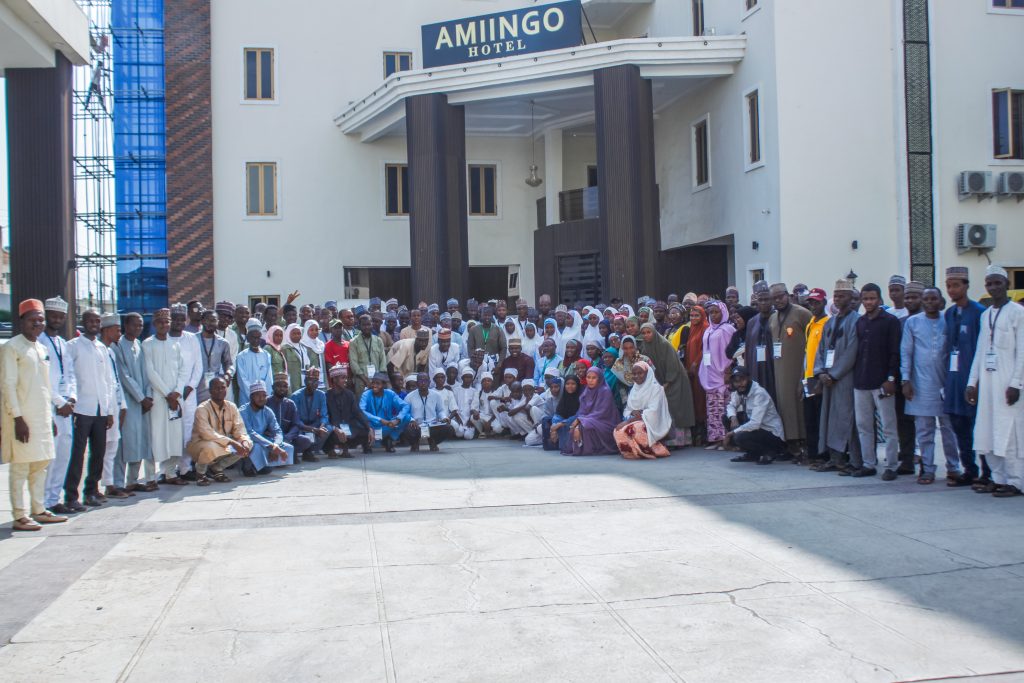The landscape of Information and Communication Technology (ICT) in Nigeria is evolving rapidly, with significant strides being made towards enhancing digital inclusion and leveraging technology for socio-economic development. One such impactful initiative was the 2-Day Zonal Workshop on ICT Adoption, Utilization, and Sustainability, held on July 1st and 2nd, 2024, and attended by key stakeholders, including Startup Kano, represented by our HR, Yomi Sani.
Objective of the Workshop
The workshop, organized by the Universal Service Provision Fund (USPF), focused on several pivotal goals:
- Capacity Building: Enhancing the knowledge of operators and managers of Public Access Venues (PAVs), especially Digital Resource Centers (DNCs) and Community Resource Centers (CRCs), on sustainable operations.
- Challenge Discussion: Addressing the unique challenges faced by CRC and DNC operators across different zones of the federation.
- Innovation and Resource Mobilization: Developing innovative strategies to ensure continuous support and resources for DNCs and CRCs, aiming for their optimal functionality and sustainability.
- Youth Empowerment: Equipping Nigerian youths with ICT skills for developing innovative applications and services.
- Stakeholder Enlightenment: Educating stakeholders on the activities and contributions of the USPF towards national ICT advancement.
The workshop centered around the theme: “Leveraging Information and Communication Technology as a Driver for Socio-Economic Development.” Sub-themes included:
- ICT Tools for e-Business and Collaboration
- 21st Century Trends for ICT Inclusion and Sustainability in Rural Communities
- ICT Career Potentials and Opportunities
Day 1: Foundation and Framework
The first day set the stage for a deep dive into the challenges and opportunities within the ICT space. The event kicked off with a keynote address by Mr. Yomi Arowosafe, Secretary of the Universal Service Provisions Fund (USPF), who highlighted the significance of ICT in bridging socio-economic gaps.
Key sessions included:
- Promotion of Universal Access and Connectivity: The Head of Infrastructure Projects at USPF discussed strategies to enhance connectivity in rural and underserved areas. This session underscored the importance of infrastructure in realizing the full potential of ICT.
- Overview of ICT in Nigeria: This workshop explored global ICT trends and their implications for rural inclusion. It was a crucial session for understanding the broader context in which we operate and the potential pathways for innovation.
- ICT Tools for e-Business and Collaboration: This session provided practical insights into leveraging smart tools for everyday business operations, a critical aspect for startups looking to integrate technology seamlessly into their workflows.
Day 2: Hands-On Learning and Forward Thinking
The second day was more hands-on, focusing on the practical applications of ICT in everyday life and the career opportunities it offers. It began with a presentation by the Head of Information Technology Projects at USPF on promoting the digital economy in Nigeria.
Highlights included:
- Career Opportunities in ICT: This session delved into the various career paths available within the ICT sector, emphasizing mobile application development. Participants engaged in hands-on activities, gaining firsthand experience in this rapidly growing field.
- Sustainability of USPF Projects: A discussion session that focused on how to ensure the longevity and effectiveness of ICT initiatives. This dialogue was crucial for understanding how projects can be sustained long-term, a challenge many startups face.
The 2-Day Zonal ICT Workshop has highlighted the critical importance of commitment to leveraging ICT for socio-economic development and was equipped with the knowledge to drive innovation in our community.

